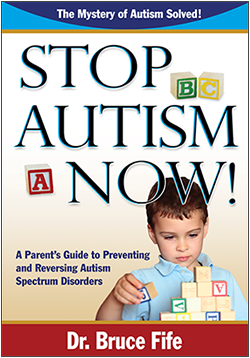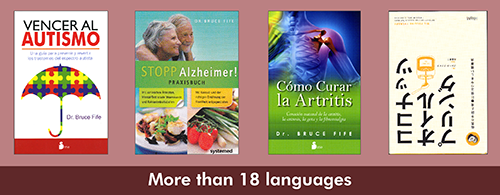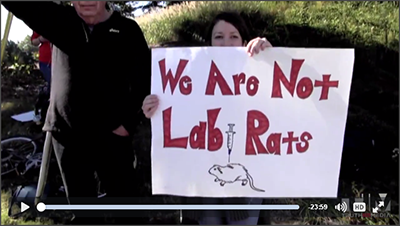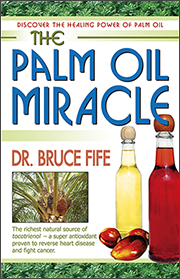E-Mail Edition Volume 13 Number 3
Published Spring, 2016
Published by Piccadilly Books, Ltd., www.piccadillybooks.com.
Bruce Fife, N.D., Publisher, www.coconutresearchcenter.org
If you would like
to subscribe to
the Healthy Ways Newsletter
Contents
-
The Autism Solution
-
Book Ban in Europe
-
Vaccine Cover-Up Exposed
-
Film Shines Light on Cayman’s “Bright Spot”
-
New Cookbook
-
The Palm Oil Controversy
The Autism Solution
By Bruce Fife, ND
At the age of two Elleanna
spoke only a few words, wouldn’t respond to her name, didn’t laugh or giggle
like other children, and obsessively opened and closed drawers throughout
the house. She would often fly into a rage at seemingly minor incidents.
Concerned with her odd behavior, her parents consulted a specialist.
Elleanna, they discovered, had autism.
Autism is a severe
developmental disorder that is characterized by social withdrawal,
communication deficits, and repetitive behaviors. Children with autism may
also experience motor function disturbances, vision or hearing defects,
hyperactivity disorder, mental retardation, or epilepsy.
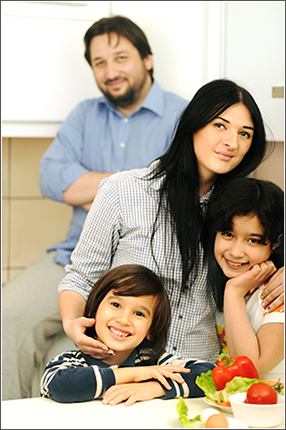
There are no blood or biologic tests for autism, so diagnosis is based
solely on behavior. In order for a physician to diagnose autism the
child must be old enough for the above conditions to become clearly
evident. Up to 40 percent develop normally
for the first 12 to 18 months of life and then rapidly lose their
learned skills, most notably their ability to speak and interact
socially. For these reasons, diagnoses are usually made between 2
to 4 years of age.
Autism is rapidly turning into an epidemic. In the 1940s one in 10,000
children were believed to have autism. By 1980 autism affected one in
every 2,500 children. According to a new study released by the Centers
for Disease Control and Prevention (CDC), today one child out of every
68 is now affected.1 This is scary. There are already over 1
million people living with autism. If this trend continues, the number
with autism could double within the next five years.
What is causing this dramatic rise in autism rates? Despite intense
investigation the cause of this mind numbing disorder has been allusive.
A number of theories have been proposed as to its cause including
genetics, vitamin or mineral deficiencies, vaccinations, toxins, and
food allergies, yet none of these can explain all cases of autism. A
unifying factor that ties all the evidence together has been missing.
Fortunately, that missing link has finally been found.
In my book Stop Autism Now! A Parent’s Guide to Preventing and Reversing Autism Spectrum Disorders the underlying cause of autism is revealed with recommendations for treatment using diet therapy.2 The book explains that there is one unique feature that distinguishes autistic children from other children—chronic brain inflammation and immune activation. The brain, has its own immune system, separate from the rest of the body. Whenever the brain is exposed to potentially harmful substances, such as bacteria or toxins, its immune system is kicked into heightened state activity. In this process, a variety of substances are released to aid the brain’s
by Dr. Bruce Fife
Available from Piccadilly Books, Ltd.
defense.
While beneficial in the short run, some of these substances, such as proinflammatory cytokines and chemokines, nitric oxide, excitotoxins, proteases, and free radicals, are potentially harmful to brain tissues. Frequent exposure to harmful agents can keep the brain’s immune system continually activated, stoking the flames of inflammation and promoting tissue damage. Repeated immune activation over a period time can result in severe disruption in normal brain development and function leading to autism.3
Medical investigators at Johns Hopkins University were among the first
to identify chronic inflammation and immune over-activation in autistic
children. They examined brain tissues from 18 people with autism, aged 5
to 44 years, who had died from accidents or injuries. They also measured
levels of inflammatory proteins in the cerebrospinal fluid (the fluid
that surrounds the brain and spinal cord) in six living autistic
patients, ages 5 to 12 years. In each case, they found extensive immune
activation and widespread elevated inflammation. The evidence indicated
that brain immune activation had persisted for years.4 The
Johns Hopkins team concluded that overstimulation of the brain’s immune
system plays a key role in the development of autism. These findings
have been confirmed by a number of other researchers.5-9
The Johns Hopkins medical team suggested the use of therapies that would
calm immune hyperactivity in the brain as a way to treat autistic
patients. Avoiding the factors that promote brain immune activation
could prevent autism altogether. So what causes immune activation?
Basically anything that can harm the brain.
Vaccines have long been suspected as a primary cause of autism. Vaccine
makers and most doctors claim there is no connection. However, thousands
of parents have testified that within days, and sometimes even hours,
after being vaccinated their children developed neurological problems
(intense headaches, encephalitis, seizures, etc.) and then gradually
slipped into autism.
No vaccine is completely safe. Every time a child is vaccinated there is a risk of adverse reactions. It is not uncommon for a child to become ill after getting a shot. If the child is relatively healthy the reaction is minor and only temporary—a fever and slight discomfort for a few days. However, in some cases it can lead to severe complications, including
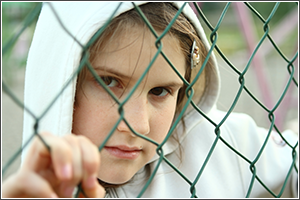
brain injury and death. According to the manufacturer’s package inserts,
vaccines can cause any number of adverse side effects including
seizures, encephalopathy (brain damage), thrombocytopenia (hemorrhaging
or bleeding in the brain), and hyporesponsive episodes (muscle limpness
and unresponsiveness). After all, vaccines contain disease-causing
viruses and an assortment of other microorganisms and chemicals to
purposely activate the immune system into a feverish state of intensity.
Injecting these toxins into the body is bound to have some
effect. Unfortunately, the brain is one of the most affected organs.
Vaccines infuse a mixture of germs and toxins directly into the
body purposely to elicit an immune reaction. The younger the
child is when he or she receives the shot, the more turmoil it causes.
An infant’s immature immune system will be unable to mount a normal
controlled defense. The response will be slow and inefficient in ridding
these poisons from the body. Booster shots are often needed to induce a
strong enough response to make it effective. Each shot causes a
prolonged period of inflammation in the immature brain that could last
between one to six months.
Giving vaccinations to very young children is bad enough, but the
repeated administration of vaccines creates an even greater danger.
Prior to 1988, the date when the measles, mumps, and rubella (MMR)
vaccine was introduced and the time when autism rates began to
skyrocket, children received less than half the number of vaccinations
as they do today.
Following the current recommended vaccination schedule, children receive
their first shot on the day of birth. At two months of age the infant
receives eight vaccines, all of which may be given at the same time. Two
months later seven more vaccines are administered. By the time a child
is 6 months old he or she has been given 25 doses of 9 vaccines.
Elleanna received all of her regularly scheduled vaccinations—37 in all
by the time she reached her second birthday.
Since immune activation can persist for up to six months with each shot,
the brain could be in a continual state of intense immune hyperactivity
for the child’s first few years of life. During this time the brain will
be under constant assault from runaway inflammation, destructive free
radicals, and harmful excitotoxins created by the immune response. With
each vaccination the brain’s immune system becomes more sensitized and
the effects are amplified.
At some point, the intense immune activity can become self perpetuating,
leading to autism. In some cases, this may occur very early in life
before the child is old
enough to communicate in any meaningful way. In others, the child will
develop normally for the first year or so before regressing into an
autistic stupor.
Vaccinations alone, however, are not the cause of autism. Most
vaccinated children do not become autistic. Why are some children
affected more than others? Autism is caused by chronic over-stimulation
of the brain’s immune system.
Anything that can harm the brain elicits an immune response.
Vaccines clearly do this, but so do other things
such as infections, environmental toxins (exposure to pesticides,
industrial waste, etc.), food allergies, heavy metal exposure (including
mercury in amalgam fillings), many drugs, certain food additives, and
physical trauma. Rarely is just one of these alone the cause. This is
why treatments that address one or two of these issues, such as a
gluten-free diet or mercury detoxification, seem to work for some
autistic children but not for others. This is also the reason why some
unvaccinated children develop autism. All these factors can contribute.
A healthy child may initially be able to withstand the onslaught of
repeated vaccinations. After each vaccination the immune system is able
to recover. However, a child that is repeatedly exposed to other
immune-stimulating factors will be less likely to recover. The next
routine vaccination may be all that is needed to push the brain’s
sensitized immune system into a state of self perpetuating
hyperactivity, which eventually leads to autism.

Elleanna’s
parents found their daughter’s diagnosis hard to accept. “I was blaming
myself,” her mother says. “I kept asking, was there anything I could
have done to prevent it?” The answer to that question is yes.
Unfortunately, she didn’t know what to do. Most parents don’t.
So what can be done to prevent autism? Avoiding unnecessary
vaccinations is perhaps the most important step you can take. Another is
to avoid as many of the other immune stimulators as possible such as
taking unnecessary drugs and getting dental amalgam fillings. Of course,
adopting a healthy diet and lifestyle will strengthen the immune system
making it more capable of withstanding various insults.
Another very important thing you can do to prevent and even treat
autism is to consume coconut oil on a regular basis. Coconut oil is
known to increase immune efficiency and protect against infections and
environmental toxins. It also helps protect the brain. Coconut oil is
composed of a special group of fats known as medium chain triglycerides
(MCTs). When digested, a portion of these MCTs are converted into a
special type of fuel known as ketone bodies or ketones. Ketones are
produced specifically by the body to feed the brain. They act as high
performance brain fuel, producing more energy than glucose. Ketones also
stimulate the activation of certain proteins in the brain that function
in brain cell maintenance, repair, and rejuvenation. By eating coconut
oil the brain receives a superior energy source that encourages better
brain function and triggers the activation of processes that calm
inflammation, repair damaged cells, and promotes growth of healthy new
brain cells. As a result, brain function is allowed to normalize.
Symptoms associated with autism fade. IQ, language and social skills,
behavior, and overall health greatly improve. For children like Elleanna
there is hope. The book Stop
Autism Now! provides detailed instructions on how to use coconut oil
and diet to stop this devastating disorder.
References
1.
http://www.myfoxboston.com/dpp/health/more-autism-reported-likely-from-better-testing-20120329.
2. Fife, B.
Stop Autism Now! A Parent’s
Guide to Preventing and Reversing Autism Spectrum Disorders.
Piccadilly Books, Ltd.:Colorado Springs, CO, 2012.
3. Blaylock, R.L. Central role of excitotoxicity in autism. JANA
2003;6(1):10-22.
4.
Vargas, D.L., et al. Neuroglial activation and neuroinflammation in the
brain of patients with autism. Ann Neurol 2005;57:67-81.
5. Zimmerman, A.W., et al. Cerebrospinal fluid and serum markers of
inflammation in autism. Pediatr Neurol 2005;33:195-201.
6. Chez, M.G., et al. Elevation of tumor necrosis factor-alpha in
cerebrospinal fluid of autistic children. Pediatr Neurol
2007;36:361-365.
7. Li, X., et al. Elevated immune response in the brain of autistic
patients. J Neuroimmunol 2009;207:111-116.
8. Sajdel-Sulkowska, E.M., et al. Increase in cerebellar neurotropin-3
and oxidative stress markers in autism. Cerebellum
2009;8:366-372.
9. Molloy, C.A., et al. Elevated cytokine
levels in children with autism spectrum disorder. J Neuroimmunol
2006;172:198-205.
Book Ban in Europe
A movement is underfoot to take away the rights of people to become
informed and make their own choices regarding their health
Banning of
controversial books is nothing new. Book banning has been an effective
means of censorship for hundreds of years. Some of our favorite classics
have been the subject of censorship such as
The Adventures of Huckleberry Finn
by Mark Twain, To Kill a Mockingbird by Harper Lee, and
Of Mice and Men by John Steinbeck. Some books have been banned for
political or religious reasons; others because they contain racial
slurs, profanity, sexuality, or excessive violence. The purpose of book
banning is to prevent the contents of these books from influencing, or
in some cases educating, potential readers.
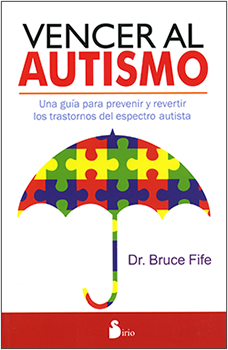
Spanish edition of Stop Autism Now!
by Dr. Bruce Fife
Available from Piccadilly Books, Ltd.
Now it appears
a movement is afoot to remove certain books that threaten the commercial
interests of the pharmaceutical industry, books that promote the use of
natural or dietary means for the prevention and treatment of disease.
Currently, there is a movement bellowing in Spain to do just this, and
my books have been spotlighted for this form of censorship.
I was recently
contacted by a newspaper reporter from the Spanish publication
La Razón in the capital city
of Madrid. He said he was writing an article about a book that was
recently published in Spain titled
Vencer Al Autismo (in English
Defeat Autism). This is the Spanish edition of by book
Stop Autism Now. His interest
in this topic was piqued by a growing movement to have my book banned
from the country. Protestors are demanding that the book be removed from
all bookstores, libraries, and websites and that the publisher stop
publication immediately. A petition is being circulated to build support
to ban the book and force the publisher to take it out of print. After 4
weeks, the promoters of this petition claim to have over 33,000
signatures.
The movement
to have the book banned appears to have originated from a single source,
Ms Ainara Ortega Arjona, a women who claims to be the mother of an
autistic child and to even be autistic herself. She wrote a scathing
article online to incite outrage over the book and encourage people to
sign her petition.
She calls the
book a “public danger” and that we should not trust our health to
information found in books. In other words, you should do what your
doctor tells you without question and don’t even try to educate yourself
by reading books, it is your doctor’s job to care for you and your
family’s health, not yours.
Autism, she
claims, is not a disease at all and so there is no cure. It is just a
behavioral characteristic that some children are born with. It is
genetic, like skin or hair color. Autistic children who appear to have
overcome the condition using special diets were really just misdiagnosed
and their symptoms really were the result of a mini-stroke or language
impairment, which they were able to grow out of. It is “impossible,” she
says, for a truly autistic child to become normal. So there is no use
trying or wasting your money on books that offer any type of hope.
However, if
autism is not a disease but simply the normal type of behavior of some
children, why are they treated with a variety of medications like other
neurological diseases?
Her belief is
that autism is normal for many people and therefore, there is no
epidemic and no need for alarm or need to seek for a cause or a cure.
The facts say
otherwise.
Over 1 million people have autism. This number is rapidly growing. Over
the past several years autism has increased to epidemic proportions.
Sixty years ago the disorder was virtually unheard of; 30 years ago it
affected 1 in 2,500; today at least 1 out of every 68 children in the
United States has autism. Autism has become an epidemic. It is
definitely not genetic because genetic disorders do not appear out of
nowhere and proliferate at such an incredible rate.
She says books
like Defeat Autism are harmful
and need to be banned because they sow false hope that could be terribly
discouraging. Parents and children affected by autism should embrace the
belief that there is no cure, there never will be a cure, and that they
should just accept it and live with it.
She claims the
book Defeat Autism is filled
with lies, that there is no scientific proof to back the claims in the
book, and that it promotes a treatment that she calls “inhumane.”
The fact is,
everything I write about in the book is backed by published studies
(over 500 studies cited) and actual experiences of those who have
recovered using the method described in the book. The “inhumane”
treatment she was talking about was a low-carb diet using coconut oil
and a few select dietary supplements. It seems to me that using this
approach for a period time (a few months to a few years) to dramatically
improve symptoms or bring about a complete recovery is far better than
doing nothing and suffering with the symptoms for a lifetime.
What I find
interesting in her article is that she writes very intelligently, not
like an average mother just speaking her mind, let alone one who claims
to be autistic. She writes and speaks both English and Spanish. Most of
those with autism have difficulty mastering one language, let alone two,
which seems very strange. She hits every single point that the
pharmaceutical industry uses in their attack against those who promote
vaccine safety and awareness. So much so, that it looks as if she may
even be a shill for the pharmaceutical industry. The book has been
attacked by such people in the US using the exact same arguments.
I did a little
investigation on Ms. Ainara Ortega Arjona and found that she doesn’t
even live in Spain, but resides in the UK. Why is she so troubled by a
book that is sold in another country? Is Ainara Ortega Arjona even her
real name? Did she even write the article and petition, or were they
crafted by someone who does not what the public to know the truth about
autism? Who would that be? Who profits by not treating autism using
natural methods? The drug companies, that’s who. If you don’t use
natural methods, you will probably resort to medications. And, as you
will discover if you read the book, the drug companies may be partially
to blame for the worldwide autism epidemic. No wonder they want to
suppress the book!
Do you Speak Spanish, German, Polish or a Language Other than English?
Many of my books have been translated and published in languages other
than English. You can find many of my books in Spanish, German, French,
Polish, Swedish, Japanese, Korean, and Chinese, to name a few. If
English is not your native language and you would prefer to read my
books in another language, please go to
http://piccadillybooks.com/product-category/foreign-language-editions/
for a complete list of available books.
Vaccine Cover-Up Exposed
The Centers for Disease Control and prevention (CDC) is caught
red-handed deceiving the public about the dangers of vaccines.
In 2004, Dr. William S. Thompson headed a study for the Centers for Disease Control and Prevention’s (CDC) National Immunization Program. That study, which ran in the medical journal Pediatrics, came to the conclusion that there’s no link between vaccines and autism. This study was used as “proof” that vaccines do not cause autism. Later, Thompson admitted that he and other CDC scientists

intentionally
fudged the results and manipulated the pool of children they analyzed.
Journalist
Ben Swann
has pored over the thousands of pages of documents relating to the 2004
CDC study on autism and vaccines. The documents were originally obtained
by Dr. William Thompson, the CDC scientist who became a whistleblower.
Dr. Thompson hired an attorney to force the CDC to hand the documents
over to Congress. In December 2015, Swann was the first journalist to
obtain the documents from Congressman Bill Posey.
“What I am
about to share with you is not theory,” says Ben Swann. “This is a
documented case of massive corruption within the CDC and an attempt to
change research, protocols, and ultimately hide their own findings.”
Swann’s
investigation led to the production of a hard-hitting documentary titled
the Truth Behind the CDC,
Vaccines and Autism. In this film Swann examines Thompson’s claims
and documents the facts, with the assistance of doctors, journalists,
authors, and former CDC scientists.
This film
isn’t about vaccines. And it isn’t about autism. It’s about a cover-up
and corruption in the CDC, a government agency, funded by your taxes,
and entrusted with your health.
Watch the
documentary and hear from the experts on whether or not the CDC
manipulated scientific findings and deceived the public.
Film Shines Light on Cayman’s “Bright Spot”
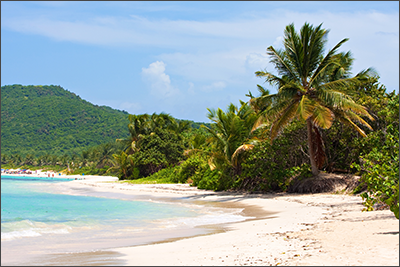
Bright
Spot
is a documentary created by filmmaker Rob Tyler and holistic
nutritionist Tamer Soliman. The duo were inspired by a concept
originated by Jerry Sternin who was able to identify successful and
traditional practices in poor Vietnamese villages that had fallen by the
wayside. Sternin called these practices “Bright Spots,” and advocated
the return to these tried and true traditional practices to solve
malnutrition in the villages.
Rob and Tamer identified coconut oil as a bright spot for the Cayman
Islands in the Caribbean. For centuries coconuts have been used in the
Caymans as a source of food as well as remedies for numerous ailments.
Through interviews with experts and locals they set out on a journey to
discover why the people have strayed from their traditional use of
coconut oil in favor of cheap imported vegetables oils, like soybean and
canola oils.
Tyler, a filmmaker by profession, paid little attention to health and
nutrition until he teamed up with Tamer to make the documentary. Once he
learned about the benefits of coconut, he chose to start cooking with
coconut oil, instead of vegetable oil. In just five months, and with no
other significant lifestyle or dietary changes, Tyler lost 30 pounds.
This is the message the film seeks to spread. “We are not trying to get
people to change their entire lifestyle,” Tamer and Tyler say. “We are
suggesting they just make one small change – cooking with coconut oil.
One simple change is easy to make…and that one change may well lead to
other subsequent changes.”
Many of the interviewees in the film describe a time when they ate
coconut oil and coconut milk in almost every dish, and there was little
occurrence of preventable, chronic diseases, such as cancer, heart
disease, and type II diabetes. Today, the opposite is true.
Coconuts are plentiful in the Cayman Islands but more often than not,
they are going to waste when many people are struggling to put food on
the table.
“About three months after arriving in Grand Cayman, I was running down
Seven Mile Beach one day and I came across some maintenance guys pruning
the palm trees.” Tamer recalls. “There were three truckloads of coconuts
they had cut down. I asked them what they were going to do with the
coconuts, and they told me they might take a couple for themselves, but
the rest would go to the dump.”
It was then that the light bulb went on in Tamer’s head. “Coconuts were
being sent to the local dump and vegetable oils were lining the shelves
of the Cayman Islands grocery stores and kitchen cupboards. I came to
understand that convenience and westernization played a part in the
diminished use of this local food. With modern research claiming that
coconut oil is one of the healthiest foods on the planet, and warning
people of the harms of highly-processed vegetable oils, I felt that
there was no better time to educate and inspire people to re-embrace
coconut oil,” said Tamer.
The 22-minute-long production was filmed in the Cayman Islands and took
ten months to complete. Over the course of those months both filmmakers
learned more about the history of the coconut in the Caymans through
interviews, museums, local historical magazines, and casual
conversations.
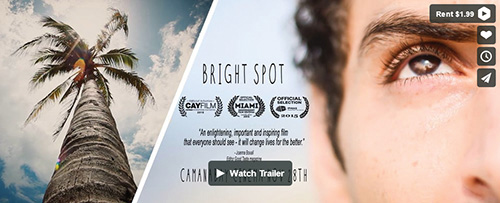
You can view the film here: https://vimeo.com/ondemand/brightspot
New Ketogenic Cookbook
Dr.
Fife’s Keto Cookery:
Nutritious and Delicious Ketogenic Recipes for Healthy Living
A
ketogenic diet is one that is very low in carbohydrate and high in fat,
with moderate protein. Such a diet shifts the body into an
ultra-efficient metabolic state in which fat is utilized as the primary
source of fuel in place of glucose (sugar).
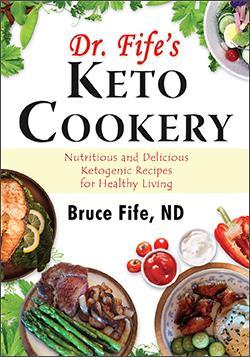
Dr. Fife's Keto Cookery
by Dr. Bruce Fife
Available from Piccadilly Books, Ltd.
dressings,
60 egg recipes, 50 delicious high-fat sauces for meats and vegetables,
as well as a variety of mouthwatering wraps, soups, and casseroles, with
a creative array of meat, fish, and poultry dishes. With this resource,
you will always have plenty of options to choose from for your daily
needs.
No exotic or hard-to-find ingredients here. This is a practical cookbook
that can be used every day for life. All of the recipes are simple, with
ingredients that are readily available at your local grocery store. None
of the recipes include any artificial sweeteners, sugars, flavor
enhancers, gluten, grains, or other questionable ingredients. Recipes
use only fresh, wholesome, natural foods to guarantee optimal health.
Some of the recipes in this book include: chicken pot pie, corned beef
and cabbage, barbecue beef short ribs, sirloin tip roast with roasted
vegetables, roasted rolled pork belly with mushroom stuffing, rosemary
lemon pork chops, lamb patties with mushroom gravy, shepherd’s pie,
low-carb turkey dressing, crispy chicken wings, Parmesan chicken strips,
pecan-breaded fish fillets, breakfast pizza, coco fries, avocado bacon
wraps, and beef stroganoff.
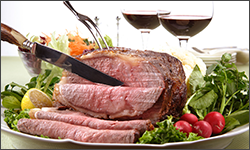
Roast Beef and Vegetables
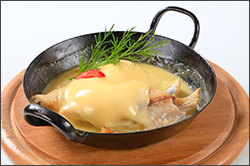
Fish and Cheese

Oven-Roasted Vegetables
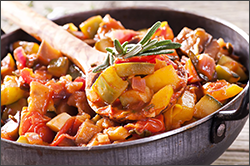
Ratatouilli
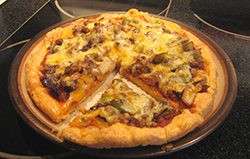
Breakfast Pizza
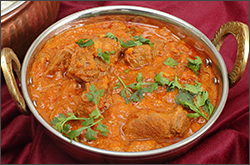
Rogan Josh
Nearly 450 recipes in all.
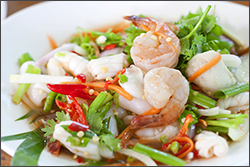
Shrimp Salad
The Palm Oil Controversy
by Dr. Bruce Fife
Available from Piccadilly Books, Ltd.
Not a week
goes by that I don’t receive at least one email asking why I recommend
the use of palm oil when we hear so many reports about the destruction
of the rainforests in Malaysia and Indonesia for the planting of oil
palms and how this is threatening wildlife, especially the orangutan.
If the use of
palm oil was truly a threat to endangered wildlife I would be concerned.
But the issue is not about endangered species or sustainability, it is
about corporate greed and consumer misinformation.
Back in the
1990s I began an in-depth study on the health effects of fats and oils.
At the time, I believed, like most people, that saturated fats promoted
heart disease and that polyunsaturated fats were the “healthy fats” that
we should be eating. As I pored over the medical literature I
discovered that I was wrong. What I discovered was that saturated fats
were the good fats and that eating too much polyunsaturated oil could be
very hazardous to your health. I also learned about the amazing benefits
of coconut oil.
In the late
1990s I began writing and promoting the use of coconut oil and other
saturated fats. My first book on coconut oil was published in 2000. It
was originally titled “The Healing Miracles of Coconut Oil.” In 2004 the
title was changed to “The Coconut Oil Miracle.”
During my
research I learned a lot about the health effects of the various fats
and oils. I discovered that palm oil was also a very healthy fat and
wrote a book about it titled The
Palm Oil Miracle. This book was released in 2006, the same year the
new law went into effect that required the labeling of trans fats on
packaged foods.
Trans fats
are found in hydrogenated vegetable oils. In an effort to reduce the
trans fat content in their products, food manufacturers began looking
for suitable fats that could replace the hydrogenated vegetable oils
they had been using. Saturated fats were the perfect answer, palm oil
was particularly attractive because it was resistant to oxidation
(rancidity), stable under normal cooking temperatures, and relatively
inexpensive.
When I was
doing the bulk of my research on palm oil in 2005, I never ran across
any mention of the destruction oil palms were supposedly having on the
environment. Oil palms had been cultivated for decades, and at this
time, palm oil was second only to soy as the most commonly used oil in
the world. If there were abuses going on, I would have learned about it.
There was no mention of any problem in the media.
Suddenly in
2006 alarming reports began circulating through the media about the
abuses of the oil palm industry and how it was destroying the
environment, leveling hundreds of thousands of acres of rainforest, and
killing up to 5,000 orangutans a year. Demonstrators gathered around
business and protested the use of palm oil and demanded food
manufactures and restaurants stop using it. Protestors identified
certain brands of foods containing palm oil and called for a nationwide
boycott on these foods. Protestors marched into grocery stores by the
hundreds and stuck bright-colored warning labels on foods containing
palm oil. Articles flooded the media depicting cleared rainforests and
dead wildlife, all attributed to the encroachment of oil palm farming.
Never in history has there been such a vocal and active protest against
a food ingredient. Even trans fats that have been documented to
contribute to heart disease, diabetes, and cause thousands of premature
deaths annually never saw such protests.
Palm oil had
been around for a long time, why suddenly in 2006 was there such an
enormous outcry against it? When the new labeling law went into effect,
sales for hydrogenated soybean and other hydrogenated vegetable oils
rapidly declined. For the most part, palm oil took their place. This was
a big blow to the seed oil producers. They stood to lose billions of
dollars to the increasing use of palm oil. As a consequence, they
orchestrated a cleaver smear campaign to discredit their competition in
an attempt to recapture their market share. They began feeding lies and
half-truths to green organizations and activist groups, donating
millions of dollars to them, and encouraging them to wage
war on palm oil.
Has there been abuse in the oil palm industry? Yes, some but these have been greatly distorted and blown way out of proportion. The abuses caused by soy, corn, and canola have been far worse and have caused far greater environmental damage. But you rarely ever hear about it. Why? Because there is no one out there funding anti-canola or anti-soy rallies. Most of the media hype about palm oil is simply not true. For example, a photo of a rainforest being leveled is accompanied by a caption that attributes the destruction to oil palm, yet the picture is really of a field being prepared
for soy
cultivation. Or a photo showing dead or dying orangutans or elephants
and claims it’s was done by the oil palm industry, when in reality it
was done by poachers or local soy farmers and had nothing to do with oil
palms. I see this type of misinformation all the time.
I receive so
many inquiries about the misinformation being perpetuated about the oil
palm industry that I was compelled to write a book to reveal the facts
titled The Shocking Truth About
Palm Oil. If you want to learn why I recommend using palm oil and
who is really behind the anti-palm oil campaign, I encourage you to read
this book. Give it to your friends who may also be misled by the
cunning tactics of the seed oil industry.
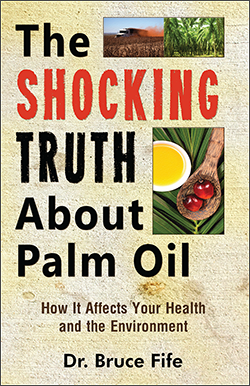
The Shocking Truth About Palm Oil
by Dr. Bruce Fife
Available from Piccadilly Books, Ltd.
Do you have friends who would like this newsletter? If so, please feel free to share this newsletter with them.
If this newsletter was forwarded to you by a friend and you would like to subscribe, click here.
Copyright © 2016, Bruce Fife. All rights reserved.
